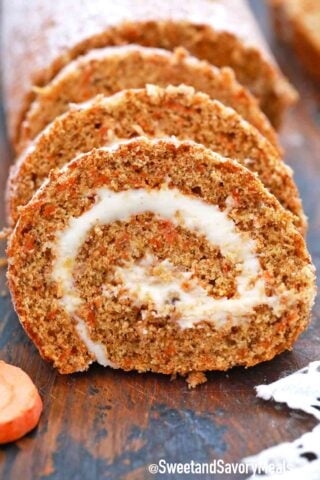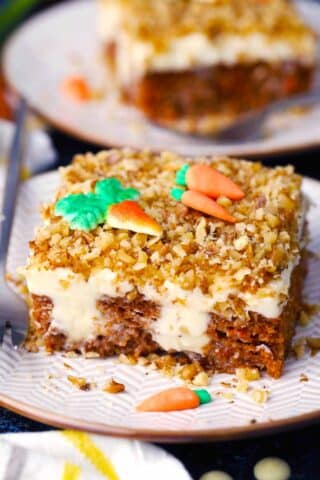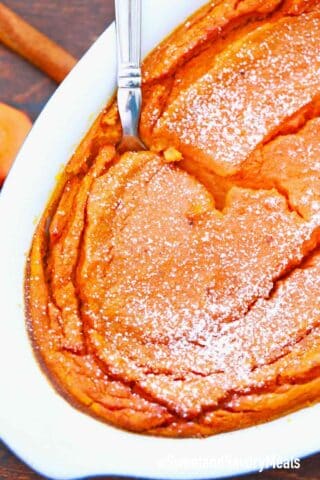Easter Greek Cookies – Koulourakia
What I love most about the holidays is all the cherished family traditions that bring us together or remind us of our loved ones. These Greek Easter cookies, Koulourakia, are one of those authentic and classic recipes that my great-grandmother used to make. They are effortless to make, but full of flavor— buttery, slighthly sweet, crispt on the outside, while fluffly and tender on the inside.
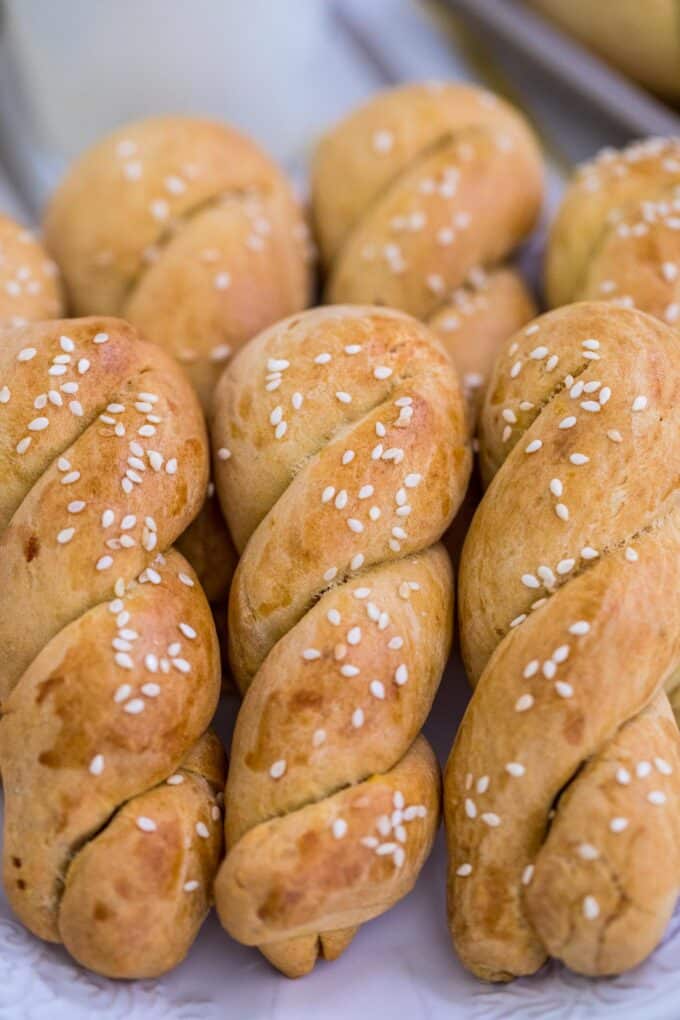
I don’t need any fancy kitchen gadgets or expensive ingredients to make these. As I have my kids, it became a tradition to make them on the Saturday before Easter. The dough is easy to handle, making it perfect for little hands to braid. While they work on the cookies, I make my classic carrot cake and Eastern European Paska bread, and we all prepare this blueberry French toast casserole to enjoy on Easter morning.
Table of contents
These cookies aren’t just delicious, they become part of the family history, a beautiful tradition to share with loved ones. They are also the perfect dessert to make with kids, and they can be made ahead of time. I usually make a bigger batch, and wrap them as little hostess gifts for my friends. Whether you are familiar with these cookies or making them for the first time, I think you will find them as joyful and charming as I do.
What are the Greek Koulourakia cookies?
Koulourakia cookies originated from Greece and are traditionally made on Holy Saturday to be served the next morning for Easter. They later gained popularity all over Europe and the United States and are now enjoyed at all major Greek holidays, as well as various festivals and celebrations. Also, the cookies are made with butter and can be shaped into different forms. They are sometimes egg-washed and sprinkled with sesame seed.
Why you will love this recipe
- Perfect for Easter: These are traditional Greek Easter cookies perfect for my Easter dessert table. Both kids and adults love them.
- They’re fun to make! I like to get the kids involved in this job because they enjoy doing the braiding.
- Not too sweet: Even though they are cookies, they are great as biscuits with a cup of tea or coffee.
- Just a few ingredients: With just a handful of basic ingredients, these cookies are easy and inexpensive to make.
What you will need
- Dry ingredients: All-purpose flour, baking soda, and baking powder are the three dry ingredients needed to make the dry part of the batter.
- Wet ingredients: The wet ingredients include orange juice for extra flavor, unsalted butter to make things creamy and fluffier, eggs to bind everything together, and vanilla for a hint of floral taste.
- Seasonings: I add orange zest and a bit of salt to make these cookies taste even better. I also add some sesame seeds on top for garnish and flavor.
- Egg wash: To glaze the cookies and keep the sesame seeds in place where I sprinkle them, I brush them with a mixture of beaten egg and milk.
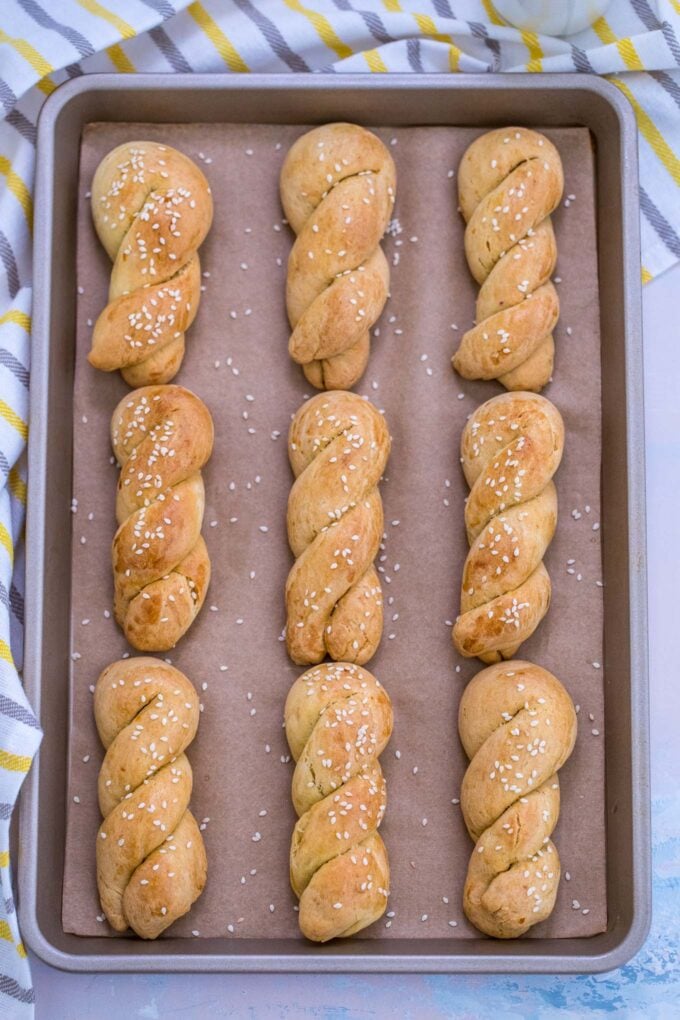
How to make
- Mix the batter: First, I mix the flour, baking powder, baking soda, and salt in a medium bowl. Then, I cream the butter in a large bowl with an electric mixer, gradually adding the sugar and the orange zest. The eggs go in next, one at a time, alternating with the orange juice and vanilla. Afterward, I add the flour mixture a little bit at a time, stirring in between until it is a soft dough. I cover it and let it chill for 30 minutes.
- Preheat the oven: When I’m ready to bake these, I preheat the oven to 375°F and line a baking sheet with parchment paper.
- Make the cookies: While the oven heats, shape the cookies and arrange them on the prepared cookie sheet, spacing them 2 inches apart. I whisk the egg and milk in a small bowl and brush it onto the cookies before sprinkling sesame seeds on top.
- Bake and serve: Finally, I bake them for 10 to 12 minutes or until they are golden brown. After, I let them cool for several minutes before serving.
Expert tip
How to braid the cookies
Braiding the cookies is very simple. The important thing is to chill the dough for at least 30 minutes before braiding it. I roll them out into balls about 1 1/2 inches in diameter and then roll the balls into log shapes. Then, fold the legs of the log in half and cross them over each other to create a braid down to the bottom. Watch my video to see exactly what I mean.
More tips to consider
- Let the butter come to room temperature before starting.
- To make the braid neater, cut the ends straight with a knife.
- Instead of using egg wash, use honey or syrup for a sweeter cookie.
- Try not to use flour when shaping the cookies, so they don’t get dry.
- These can also be made into different shapes.
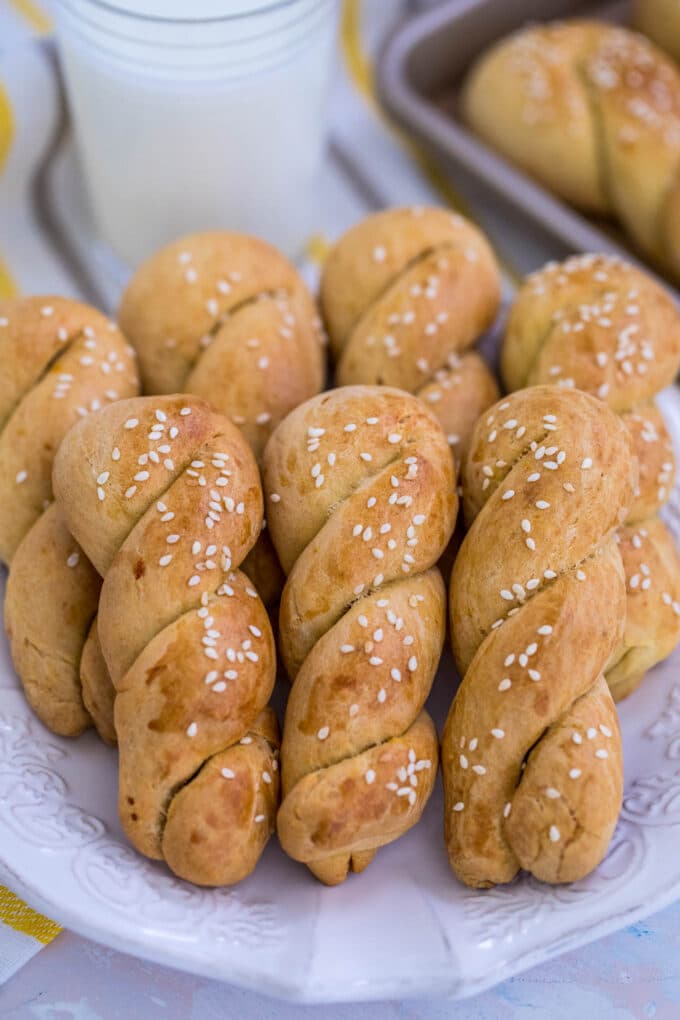
Recipe variations and add-ins:
- Other citrus: I sometimes use lemon or lime juice and zest instead of orange to give these cookies a different taste. Mixing two different kinds, like lemon and lime, makes them even better.
- Orange oil: Also, using orange oil instead of orange zest would work too and will save you a step.
- Go nuts: Instead of sesame seeds, sometimes I use chopped nuts for a different texture and flavor. Toasted pecans are my favorite.
- Color them: Since it’s Easter, adding some pastel colors with colored sugar or candy sprinkles would also be nice.
- Add some booze: To give these cookies a deep rich flavor, I sometimes add a tablespoon of my favorite brandy with the orange juice and vanilla. Don’t worry, nobody will get drunk from it.
- Chocolate chips: Of course, every cookie has to have some chocolate chips. I always make a batch with some chocolate chips mixed in, even if they aren’t traditional. The kids love them, and so do I.
Serving suggestions:
After the festive and impresive instant pot ham and my creamy mac and cheese casserole are devoured, these Easter cookies are always served with a cup of coffee for the adults, but the kids love them with a mug of my homemade hot chocolate. Dipping them in hot chocolate makes them taste better for some reason. They go right along with my carrot cake poke cake, which is always a hit with the kids and the adults.
These cookies are also perfect for church luncheons and other gatherings. They are easy to make with just a handful of inexpensive ingredients and pair well with anything I’m serving. They taste excellent when served with my cranberry orange chicken, as they both burst with orange flavor.
How to store leftovers:
- Refrigerate: Leftover Greek Easter cookies can be stored in a sealed container on the counter for up to a week or in the fridge for up to two weeks.
- Freezing: To keep them longer, I wrap mine in plastic and then put them in freezer bags. They will stay fresh in the freezer for up to four months.
- Defrost: Thaw overnight in the refrigerator for the best texture and taste.
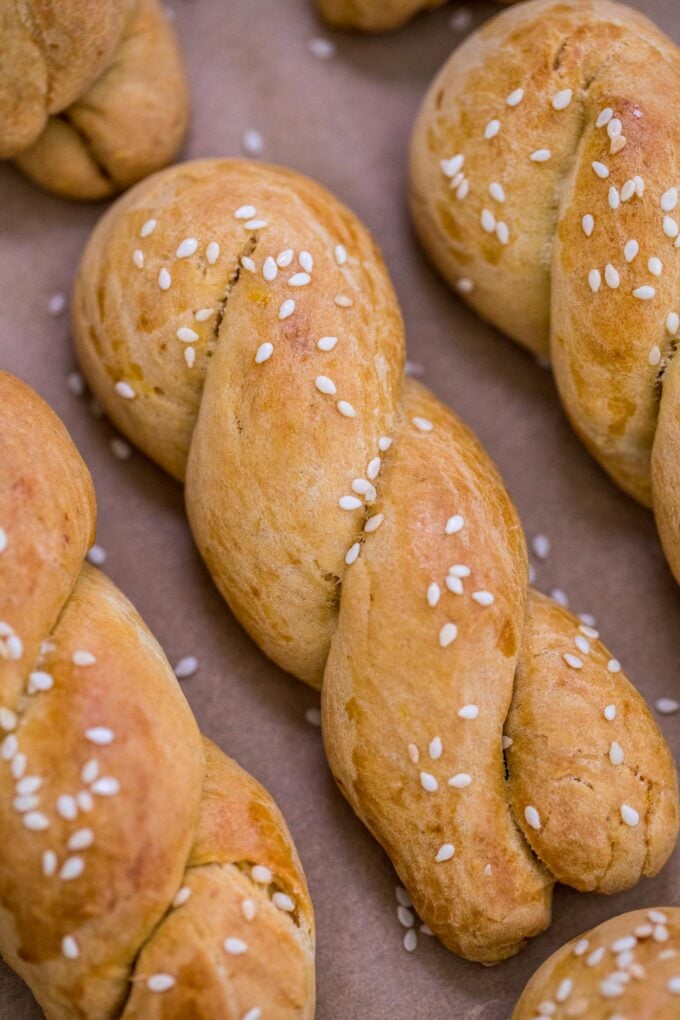
Frequently asked questions
This can happen if there is too much flour in the dough. Be sure to use the spoon and level measuring method by spooning the flour into the measuring cup and then leveling it with the back of a knife. Otherwise, the excess flour makes the cookies dry. Another reason could be from sprinkling flour on the work surface when braiding the dough. It is better to use very little, if any at all.
Although the traditional Greek recipe calls for baker’s ammonia as a leavening agent, it is not commonly used in the United States, so I use baking soda instead. It also has a sharper smell and a tangier flavor that some people dislike. However, to make it with baker’s ammonia, you can order it online and use it instead of baking soda and baking powder.
Overworking or overmixing the dough can cause too much gluten to build up, making the cookies chewy and difficult to eat. They will end up dry and tough. When stirring, mix the dough just until it comes together, being careful not to overmix it so that it remains soft and pliable. Then, put it in the fridge to chill. After that, roll it into a ball, and then into a rope to make a simple braid.
If the insides of the cookies are still doughy when the outsides are golden, it’s probably because they were too thick. If the cookies are too thick, the centers won’t cook properly. The braid should be about the size of your pinky finger, and all the strands should be the same size for consistent cooking.
More Easter desserts:
Loved this recipe? I’d love to hear from you! 💛 Leave a 5-star rating ⭐️ in the recipe card below and share your thoughts in the comments – I read and appreciate every single one!
Let’s stay connected! Follow me on Facebook, Instagram, Pinterest, and YouTube for more delicious, sweet and savory recipes. Have a question? Ask in the comments, and I’ll be happy to help! 😊 with love Catalina!

Easter Greek Cookies
Ingredients
- 1 cup unsalted butter room temperature
- 1 1/2 cups white sugar
- 3 eggs
- 1/2 cup orange juice
- Zest of 1 orange
- 6 cups all-purpose flour
- 1 teaspoon baking ammonia or baking soda
- 2 teaspoons baking powder
- ½ teaspoon salt
- 1 teaspoon vanilla extract
Egg Brush:
- 1 egg beaten
- ⅓ cup milk
Instructions
- In a medium bowl mix flour, salt, baking powder, and baking ammonia or baking soda.
- Add butter to a large bowl and cream it with beaters. Add sugar gradually. Add orange zest.
- Add eggs one at a time alternating with orange juice. Add vanilla extract.
- Add flour mix a little bit at a time and mix. You should end up with a soft, pliable dough.
- Cover and chill the dough for 30 minutes.
- Preheat oven to 375 degrees F.
- Shape as desired, check the Notes for details on how to create the shape.
- Line a baking sheet with parchment paper and arrange the cookies on it, 2 inches apart.
- Whisk egg and milk in a small bowl. Brush cookies with the egg and milk mixture. Sprinkle with sesame seeds.
- Bake in the preheated oven for 10 – 12 minutes, or until golden brown.
Video
Notes
How to braid the cookies
Braiding the cookies is very simple. The important thing is to chill the dough for at least 30 minutes before braiding it. I roll them out into balls about 1 1/2 inches in diameter and then roll the balls into log shapes. Then, fold the legs of the log in half and cross them over each other to create a braid down to the bottom. Watch my video to see exactly what I mean.More tips to consider
- Let the butter come to room temperature before starting.
- To make the braid neater, cut the ends straight with a knife.
- Instead of using egg wash, use honey or syrup for a sweeter cookie.
- Try not to use flour when shaping the cookies, so they don’t get dry.
- These can also be made into different shapes.

